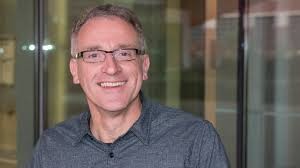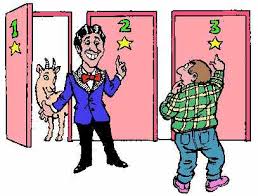 When scheduling classes in August, I dreaded the thought of taking a general science course, as I did not know what to expect. From the first class, I got a feel for the way Andrew Read concentrated solely on what we take away from his lectures rather than how we can memorize the information and go great on tests. I did not think that a single class would effect my thinking, and cause me to have a new perspective on the world I live in. However, I was completely wrong in this assumption and in for a rude awakening.
When scheduling classes in August, I dreaded the thought of taking a general science course, as I did not know what to expect. From the first class, I got a feel for the way Andrew Read concentrated solely on what we take away from his lectures rather than how we can memorize the information and go great on tests. I did not think that a single class would effect my thinking, and cause me to have a new perspective on the world I live in. However, I was completely wrong in this assumption and in for a rude awakening.
Poor Learning Habits
Coming from the Philadelphia Public School system, the schools I attended were so focused on achieving good grade averages and standardized test scores, that we were not taught to learn material, but to memorize it for the test. I never really had a class in my life that caused me to reach a higher level of thinking, so high to the point that even the smartest scientists couldn’t answer these questions. I’ve never taken a course that required me to hold myself accountable to THINK about the possible answers and reasons for an idea. Honestly, I can say that I have not learned much from past professors and teachers, because they

Image taken from http://www.phillymag.com/citified/2015/10/02/school-choice-insider/
expected me to go home and memorize the material, rather than requiring me to think about it, in order to fully understand it. When I look back on this fact, it explains why I did so poorly on my Class Tests in this course. I was so used to having the answers right in front of me by simply referring to my notes, but that is not the case in this class. I found what I thought to be the right answers, but I did not think hard enough to eliminate minor details that make it wrong. Another anecdote for why I believe my first Blog Assessment Period received a D is because I did not yet acquire this higher level of thinking, and thought what I wrote was enough, without exploring all possibilities, or other third-causal variables for the topics I chose. This is all a direct causation to the poor teaching habits I’ve endured for twelve years.
When Andrew Is Added To The Equation
I knew for a fact after just my second class with Andrew Read that I would have to really buckle down and take the course seriously, with much more effort than my other classes. Andrew made it clear that this course can only be what you make of it. We also saw testimonies from previous SC200 students that regretted not putting more effort into blogs, tests, and thinking about the material. When I read those, I assured myself that I would not have those regrets come Week 15. Now here it is Week 14, and I’m writing this blog the same day it is due. Well, Andrew also did say that procrastination is a big factor in this course and that is something I’d have to work on myself.

Nice Picture! Image taken from http://news.psu.edu/story/355637/2015/05/04/research/andrew-read-elected-fellow-royal-society
All in all, I firmly believe that this course with Andrew has enlightened my critical thinking. Things that I have believed for so many years I now can question thanks to Mr. Read. I always believed “studies” and “statistics” on news websites and blogs, but now I know that everything is questionable. There is a difference between concrete facts and science. Science will always have error, so there is no definite, 100% right answer. Without Andrew elaborating on this idea so heavily throughout the course I would not have thought of things this way. I always thought “well they’re scientists so it has to be right”, when in fact that is the complete opposite. A main attribute of science is finding error, and creating new knowledge from it. So how could I possibly think that all science was correct? Concepts Andrew taught us such as the File Drawer Problem and Texas Sharp Shooter Problem helped me think critically when evaluating science on the internet, allowing me to spot what is likely to be crap science, or biased.
I truly believe that this course has deeply effected my perspective on the world. Also, I can connect the concepts to my life decision making. Andrew taught us that our intuition is lousy, and I always thought what I initially think to be the best way. But this conclusion that human intuition is lousy, changed my thinking. For instance, the Monty Hall Problem is a prime example of how humans think their intuition cannot fail them.

Image taken from http://www.grand-illusions.com/articles/monty_hall/
Instead of thinking, 50-50, there is always a strategic answer to the problem. This caused me to think deeply about the situations I make in life. When I weight out the possibilities of being in situations, I now know that it is not always so defined as going one way or the other, there is always more to the problem. What my intuition tells me to be good for me, may not always be, but critical thinking cannot fail me.
Also, knowing the risk versus the danger of things and situations helps me decide what I deem as “safe” and what I refuse to do. When learning the risk of death by car accident compared to other everyday things such as getting vaccinated it made me really think deeply. Why would I rather endure the risk of getting in a car than getting a shot to prevent me from getting sick in the future? Little everyday things, such as getting on the Blue Loop to class can put me at risk. These are little things I never would have thought about had I not taken SC200, which is why I am grateful for Andrew Read and Penn State University for offering this course.

Image taken from http://news.psu.edu/photo/146051/2013/02/08/blue-loop-cata-bus








